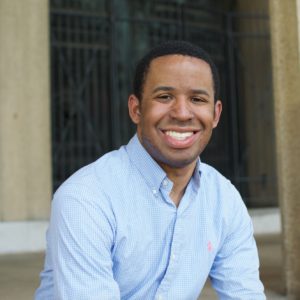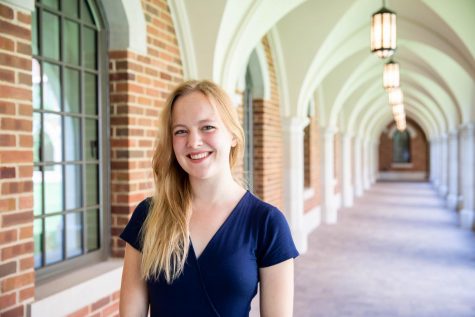On Sept. 5, the Trump administration announced the end of the Deferred Action for Childhood Arrivals (DACA) immigration program, which allowed undocumented immigrants brought to the United States as children to remain in the country under certain provisions. The decision drew criticism from Vanderbilt administrators, including Chancellor Zeppos, who said ending DACA was a mistake.
Three days later, Vanderbilt students responded with DefendDACA, an event in which 15 different student organizations came together to call Tennessee representatives and ask that they support legislation that will protect those affected by the end of DACA.
The Hustler sat down with members of various multicultural organizations on campus, some of whom participated in the DefendDACA event, to learn more about how they and their organizations feel in the wake of the decision.
Anonymous DACA recipient
I received DACA when I was a sophomore in high school and it opened so many doors for me. I was able to fly for the first time in 15 years and that was insane. College became an option; before I was like how am I going to do this financially, a lot of people who are undocumented can’t get the best work out there, so you don’t have a lot of money. On top of that, you’re considered an international student and a lot of colleges don’t give out a lot of money or financial aid to international students, so it’s very difficult, for sure. But with DACA, a lot of scholarships opened up and the possibility of being funded by a college was a reality. It helps you financially, academically and also psychologically because you spend so much time throughout your entire childhood just wondering when you’ll be kicked out of the only place you’ve called home. DACA, psychologically made me feel like I had a whole load lifted off of me and I felt like I could focus on things and I was able to understand how much of a difference it is. All these kids just want to help themselves and help their families and do better in this country, and that just benefits the country itself.
 Daniel Rose, Vanderbilt Association of Hispanic Students
Daniel Rose, Vanderbilt Association of Hispanic Students
My frustration came out of this lack of understanding about how it would benefit the country. The decision essentially was made because they thought it would better the country, it has been Trump’s slogan to “make America great again” and I don’t understand how cutting DACA will, essentially, make America great again. However, he wants to, I believe, make this appear as if it is helping the immigration status of America right now and the issues that come with illegal immigration. However, cutting DACA I don’t feel like responds directly to immigration and helping that situation and making things clear because DACA is for those individuals who have been brought here against their own accord, mainly by parents, and literally all they know is American culture. And now, I know individuals who are 18 years old, 25 years old, who have DACA and are using those things to go to universities and give back to the United States and consider themselves American essentially because that’s all they know. I don’t see how cutting this benefit that they have to assist the United States, I don’t see how cutting that helps, so I’m definitely pretty frustrated even with the discussion of it because now more than ever we need a little unity in the United States.
Grace Wie, Asian American Student Association
I feel like there’s another layer in that with any multicultural organization, most of us are second generation immigrants and I think it’s very easy for people to forget that for someone to have had the privilege to come here legally was not something simple. It wasn’t just you fill out one form and you’re done, it’s easy to forget that. That’s why I think, if anything, multicultural organizations have and should have such a big investing in talking about DACA because this could have easily been any one of our families. If my dad hadn’t known who to contact for the proper paperwork, that could’ve been me as well. I’m hopeful that people will start to see that.
 Dom Meneses, Vanderbilt Association of Hispanic Students
Dom Meneses, Vanderbilt Association of Hispanic Students
Before it was formally announced I kind of figured it was going to end either way. People aren’t realizing the full potential of all of these kids, and it’s become more of a political gain that anything. If you think about it and really understand what the program does, what it’s for, who these kids are, all the amazing things that they are doing and just how beneficial they are to American society and how much a part of it they are, it’s ridiculous to think that there still hasn’t been legislation that’s been passed that is a more permanent fixture for these kids. The fact that there’s been a debate over if Obama’s idea to pass this as an executive action is right or not—I mean the reason he did it was because for so many years it had been tried as legislation and Congress failed to do anything and there came a point where everyone was desperate because nothing was happening, so it didn’t come out of nowhere, it had been ongoing for years.
 Priya Triveda, South Asian Cultural Exchange
Priya Triveda, South Asian Cultural Exchange
If you are not in a position of power to be advocating for yourself, you need other people to be advocating for you and I think that’s something that most minority students on campus understand and so having been through that same struggle in other areas on campus I think it’s understandable like if you are an undocumented immigrant you shouldn’t have to be advocating yourself because that’s how the policy is going to catch you. In repealing DACA, you need to be especially aware of being very public about what’s going on in your personal life, you need everyone who has the privilege of being a documented immigrant or a citizen to be advocating for you and so it was the only channel.
 Jacob Pierce, Vanderbilt Multicultural Leadership Council
Jacob Pierce, Vanderbilt Multicultural Leadership Council
The MLC is always ready to support our member organizations and whatever efforts they have, and not only have administrative resources for these orgs, but also providing them with that support and comfort and promoting their own mental health and wellbeing, because I know it can be very hard and we need to take care of one another before we can take care of everyone else.
Gracie Pitman contributed to this story.


